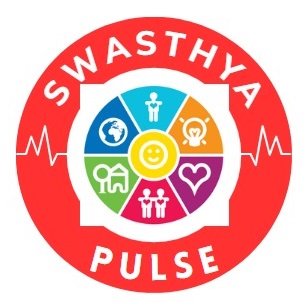Blood Cancer Treatment: Tips to Reduce Your Risk
If you had asked someone a decade ago about blood cancer, they might have called it a rare disease. But today, blood cancer is no longer rare. Each year, more than half a million people are diagnosed worldwide. The most common form is leukemia—a cancer of the blood cells.
Leukemia develops in the white blood cells, which normally fight infections. In this condition, abnormal cells multiply uncontrollably, crowding out healthy blood cells. This leads to problems like fatigue, bleeding, infections, and weakness.
There are several types of leukemia and other blood cancers, and treatment depends on the specific type and stage. Common treatment options include chemotherapy, radiation therapy, targeted therapy, and bone marrow transplant. Thanks to medical advances, many people today live long and healthy lives after early diagnosis and proper treatment.
That said, prevention and risk reduction play a big role. Here are some ways to lower your risk of blood cancer:
Tips to Reduce Blood Cancer Risk
1. Avoid Exposure to Carcinogens
Stay away from harmful substances like tobacco smoke and radiation. These carcinogens damage DNA and increase cancer risk. Tobacco is a leading cause of many cancers, while radiation exposure is linked to leukemia. Avoiding these can significantly lower your risk.
2. Eat a Healthy Diet
A diet rich in fruits, vegetables, whole grains, and antioxidants helps protect your cells from damage. Eating a variety of plant-based foods daily supports immunity and may reduce your risk of blood cancer as well as other chronic diseases.
3. Exercise Regularly
Physical activity keeps the body strong and boosts the immune system. Aim for at least 150 minutes of moderate exercise per week. Regular exercise not only lowers cancer risk but also protects against heart disease and stroke.
4. Limit or Avoid Alcohol
Even moderate alcohol consumption can increase the risk of some blood cancers. The safest choice is to avoid alcohol altogether or consume it only occasionally and in small amounts.
Common Symptoms of Blood Cancer
Symptoms can vary depending on the type of blood cancer, but some common warning signs include:
Fatigue and weakness
Shortness of breath
Easy bruising or frequent bleeding
Frequent infections
Bone or joint pain
If you have a family history of blood cancer, consider genetic testing and regular health checkups to detect risks early.
Treatment for Blood Cancer
Treatment plans depend on the type and severity of the disease. Options include:
Chemotherapy – uses drugs to kill cancer cells.
Radiation therapy – targets cancer with high-energy beams.
Targeted therapy & immunotherapy – newer treatments that focus on specific cancer cells.
Bone marrow or stem cell transplant – replaces damaged blood-forming cells with healthy ones.
Some blood cancers can be cured, while others can be managed effectively for long periods. Early diagnosis and a personalized treatment plan from a specialized cancer care team offer the best outcomes.


